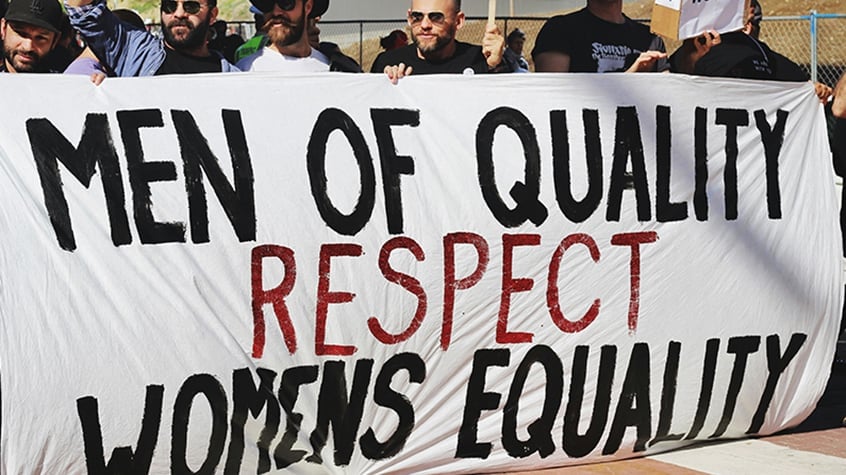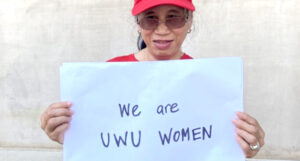
Gender equality is not just a women’s issue. If you care about equality, then it has to be for everyone, no matter their ethnicity, gender, sexuality or socio-economic status.
Some people are more likely to experience discrimination
Women, people of colour and different sexualities, genders and abilities are all more likely to experience discrimination, and even harassment, in and outside the workplace.
If you’re not in one of those groups, there are still things you can do to try and minimise discrimination against others.
Research done by the Boston Consulting Group shows that when men get involved in gender equality, everybody is more positive about progressing the issue and taking action that will get us all closer to gender equality.
How can you become an ally?
Just saying you’re an ally isn’t enough. You have to act like one.
It’s also not enough to just care about the women you know personally, such as a partner, a mother, a daughter or a colleague.
To commit to gender equality for all, you must accept your own part in systemic inequities based on gender.
Here are six behaviours you can develop to become a real ally:
- Amplify women’s contributions, encourage them to come forward
- Monitor and identify inequalities around you
- Listen and learn from your women colleagues and friends
- Promote women’s independence, let them speak for themselves
- Step back, being an ally isn’t self-interest
- Question the status quo, just because something has always been done a certain way, doesn’t mean there’s not another or better way
What NOT to do: Never be a bystander
Discrimination in the workplace is unlawful. But in some situations, the consequences of not acting are more serious than others.
One of these times is when you witness or are told about sexual harassment at or outside work. If you do nothing, you could also be partly to blame for the incident.
If your workplace doesn’t have a policy, then you can contact your union to find out what to do.
If you witness harassment outside the workplace you can follow the steps below, but remember to take extra care for everybody’s safety if there is alcohol involved.

What you should DEFINITELY do if you see sexual harassment
If you see, or a co-worker tells you, that they’re uncomfortable with the behaviour of another employee, or even your manager, it’s important to try to stop and report that behaviour. Your employer has a positive duty to create an environment that’s safe for workers. Here are some ways you can approach this difficult situation.
- Distract
Try to distract the harasser to give your co-worker time to get away - Support
Check with your co-worker and see if she’s ok, offer to help - Speak up
Tell the harasser (calmly) that their behaviour is not OK. Ask them to stop. - Follow up
Make sure the incident is reported or documented. If you’re not sure what to do or who to tell, you can ring your union.
You can also be an ally in the home
Unpaid labour is a burden on women in the home. The federal government’s Status of Women Report Card shows women do an extra 5 hours of domestic work in the home, even when they are the main bread-winner.
Women also take on close to 80 per cent of the mental load of a household, or what’s also known as ‘emotional labour’. This involves organising children, monitoring what supplies and shopping are needed, planning for celebrations – all of these tasks take time and energy.

And it’s not just in households with families. On average, women also do an unfair share of household labour in share houses too.
If you think about the kinds of things you can do at home to be more helpful and share some of this load, you are already becoming a better ally.
Equality in the home is a foundation for equality at work and beyond.
Make positive change through being the best ally you can be
It’s important not to underestimate the positive change that can come out of being a real ally.
By modelling some of the behaviours outlined above, and addressing inequalities when you see them, you can support women at work, at home, in pubs and clubs, and everywhere in between. When you take on a leadership role – one that will surely make positive change for the women around you – you set an example that others can and will follow.
Be the best ally you can be and join us in creating a safer environment that fosters respect and puts equal value on everybody’s contributions.



